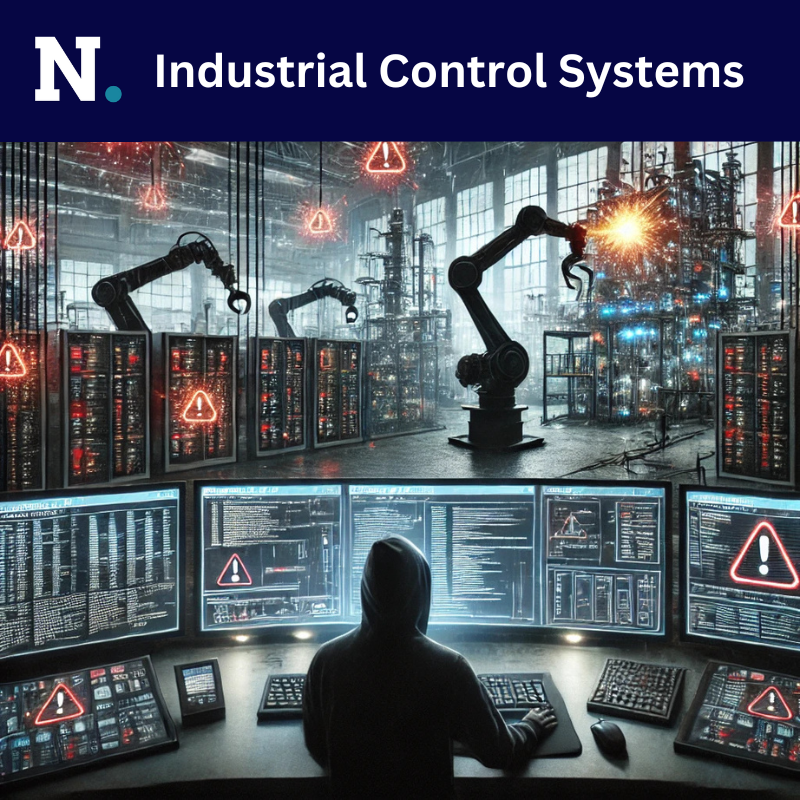Industrial control systems (ICS) are the backbone of many industries. They manage processes in factories, power plants, chemical plants, and even water treatment facilities. But when these systems are targeted by cyberattacks, it can lead to catastrophic consequences. In this article, we’ll explore how these attacks can cause harm and why it’s important to protect these vital systems.
Critical Failures in Industrial Control Systems
Industrial control systems are responsible for controlling physical processes. This means that they can manipulate things like water flow, electricity distribution, and chemical reactions. When these systems are hacked, the attackers can cause physical harm to equipment, workers, and the general public.
For example, in 2010, a virus called Stuxnet targeted Iran’s nuclear facilities. It was designed to manipulate the industrial controls in a way that damaged equipment without directly harming human lives. But while Stuxnet had this specific goal, other cyberattacks might not be as careful. If hackers targeted a chemical plant or power grid with the intent to cause harm, the results could be deadly. Explosions, fires, toxic chemical leaks—these are just a few examples of what can happen when industrial systems are compromised.
Real-World Examples of Cyberattacks on Industrial Systems
Cyberattacks on industrial systems have been happening for years, but the potential for harm is growing as more systems become connected to the internet.
The Bowman Avenue Dam Attack
In 2013, hackers managed to break into the supervisory control system of the Bowman Avenue Dam in New York. While they didn’t cause any damage, it could have been disastrous if they had been able to open the dam gates. If water had been released uncontrollably, it would have flooded the area downstream, endangering the lives of nearby residents.
This attack showed how vulnerable industrial systems can be, even when they control something as basic as a dam.
Cyberattack Catastrophe: How Hackers Can Endanger Human Lives ?
Colonial Pipeline Hack (2021)
In 2021, the Colonial Pipeline, a major fuel supplier in the U.S., was hit by a cyberattack. The hackers used a stolen password to gain access to the company’s network and demanded a ransom. Colonial Pipeline decided to shut down the pipeline for six days to prevent the attack from spreading further.
While this attack didn’t directly target the industrial systems controlling the pipeline, it still caused significant disruptions. Gas stations ran dry, airlines grounded flights due to fuel shortages, and panic buying spread across the U.S. East Coast. Imagine if the hackers had targeted the pipeline’s control systems instead, manipulating the flow of fuel. The consequences could have been even more dangerous, with the potential for explosions or leaks.
JBS Meat Processing Attack (2021)
Another major cyberattack in 2021 targeted JBS, the world’s largest meat processing company. This attack disrupted operations in multiple countries, halting slaughterhouses from the U.S. to Australia. Like the Colonial Pipeline attack, the hackers demanded a ransom, which JBS eventually paid to restore their systems.
Had the hackers gained control over the industrial systems in the meat processing plants, they could have caused contamination or food shortages, which could lead to serious public health risks. The incident highlighted how easily industrial systems can be compromised, threatening both economic stability and human lives.
Cyber Attacks on Power Grids: Alarming Risk of Cascading Failures
Pipedream Attack on Oil and Gas Facilities (2023)
Another cyberattack in 2023, called PIPEDREAM, targeted oil and gas facilities by exploiting vulnerabilities in their supply chain. Hackers gained unauthorized access to critical systems that control the flow of oil and gas. This type of attack can cause massive fires, explosions, or even spills of hazardous materials.
The planning for this attack involved compromising third-party vendors. Hackers inserted malicious code into software updates, allowing them to control vital systems from afar. Once they had access, they could manipulate critical processes, putting the lives of workers and nearby communities at risk.
Why Industrial Systems are Vulnerable ?
One reason industrial systems are such attractive targets for cybercriminals is their outdated technology. Many ICS were installed decades ago, long before cybersecurity became a priority. These systems often rely on simple security measures, making them easy to hack.
Additionally, many industrial systems are now connected to the internet to make them more efficient. However, this connection also opens them up to potential attacks. Hackers can gain access to these systems from anywhere in the world, and once they’re inside, they can cause severe damage.
How Water Supply Attacks Endanger Communities ?
Industrial control systems also have the added risk of being physically connected to other vital systems, like water pumps or power grids. If one system is compromised, it can have a ripple effect, leading to widespread failures and endangering lives.
Measures to Protect Industrial Systems
Given the importance of these systems, protecting them from cyberattacks is critical. One of the most effective ways to do this is to limit the systems’ exposure to the internet. This can be done by creating secure “air gaps” between critical systems and the internet. This ensures that even if hackers gain access to a company’s IT network, they can’t reach the industrial controls that manage vital processes.
In the IT community, there are a multitude of big companies that have endpoint protection, intrusion detection systems, and firewalls that report back to them. That is a big difference in the threat landscape between ICS and IT
Another protective measure is to install unidirectional gateways, which allow data to flow from the industrial systems to the IT network, but not the other way around. This means that if hackers compromise the IT network, they won’t be able to manipulate the industrial controls.
Furthermore, industrial systems can be monitored for unusual behavior. By setting up intrusion detection systems, companies can identify when something is wrong before it leads to catastrophic failures. Regular updates and security patches for the systems are also crucial in protecting against new threats.
Cyberattacks on industrial systems are no longer just a distant possibility. They are happening more frequently, and the potential for harm is significant. From power grids and nuclear plants to water treatment facilities, these systems are vital to our everyday lives. If they are not adequately protected, cyberattacks could cause widespread devastation, endangering both infrastructure and human lives.





